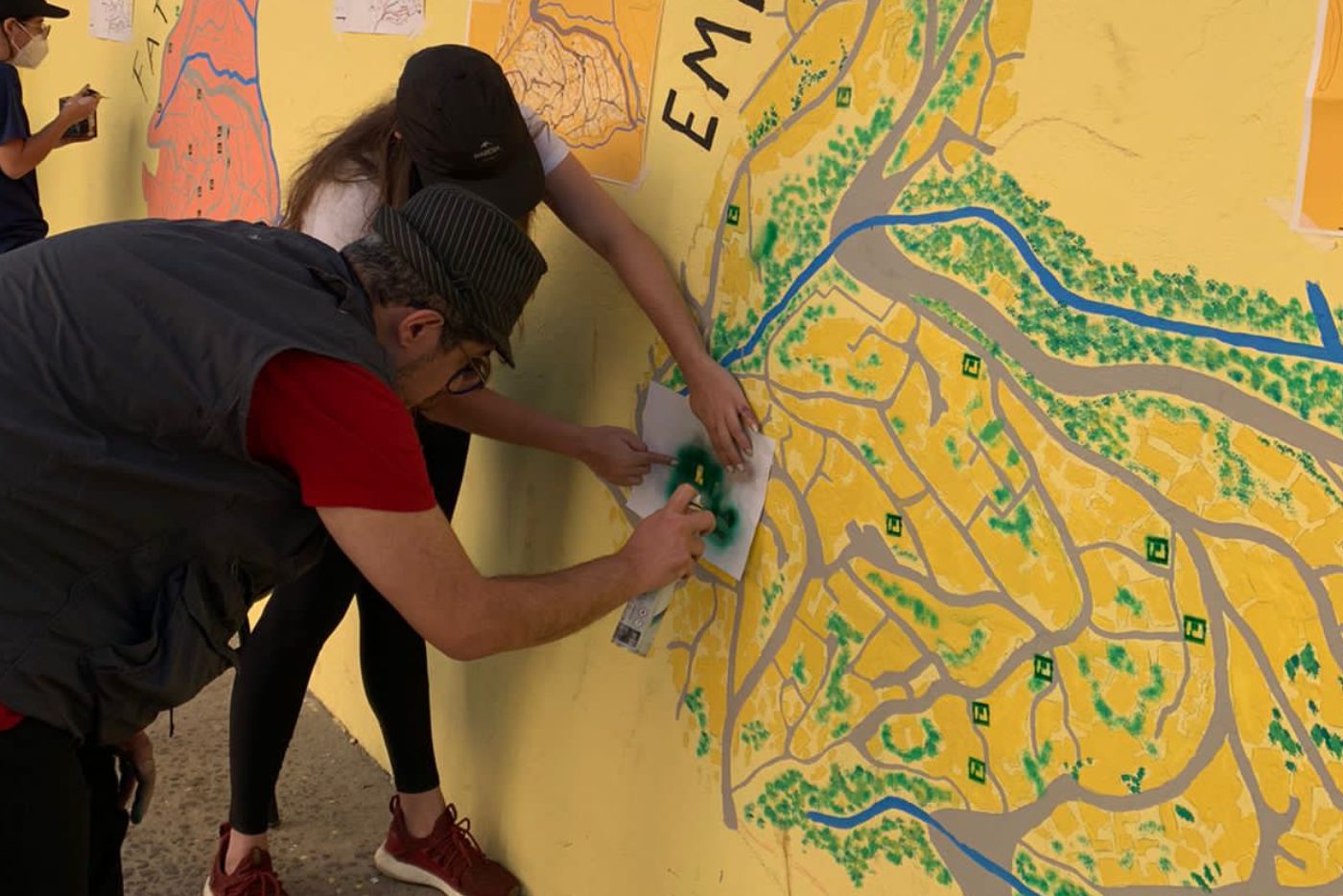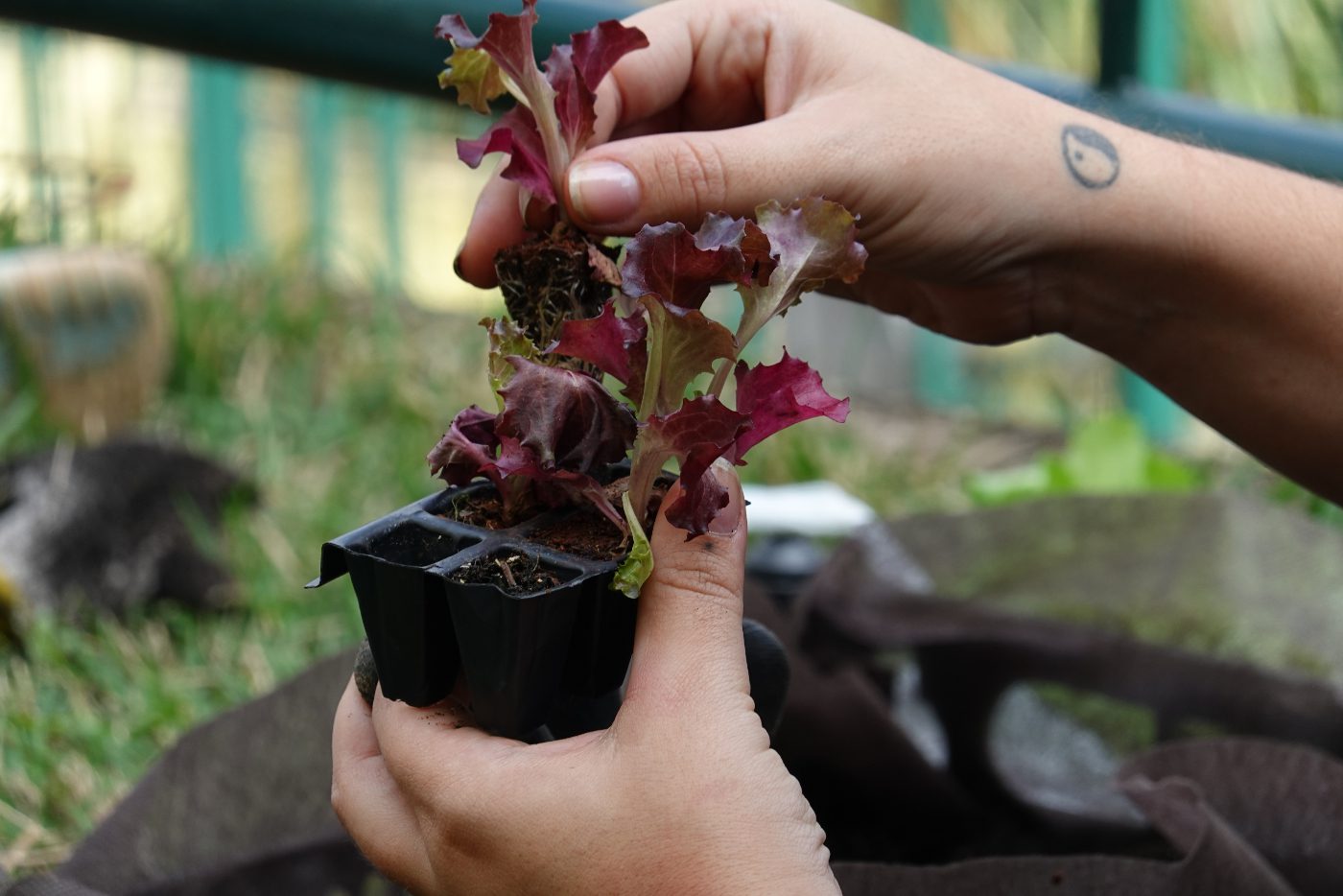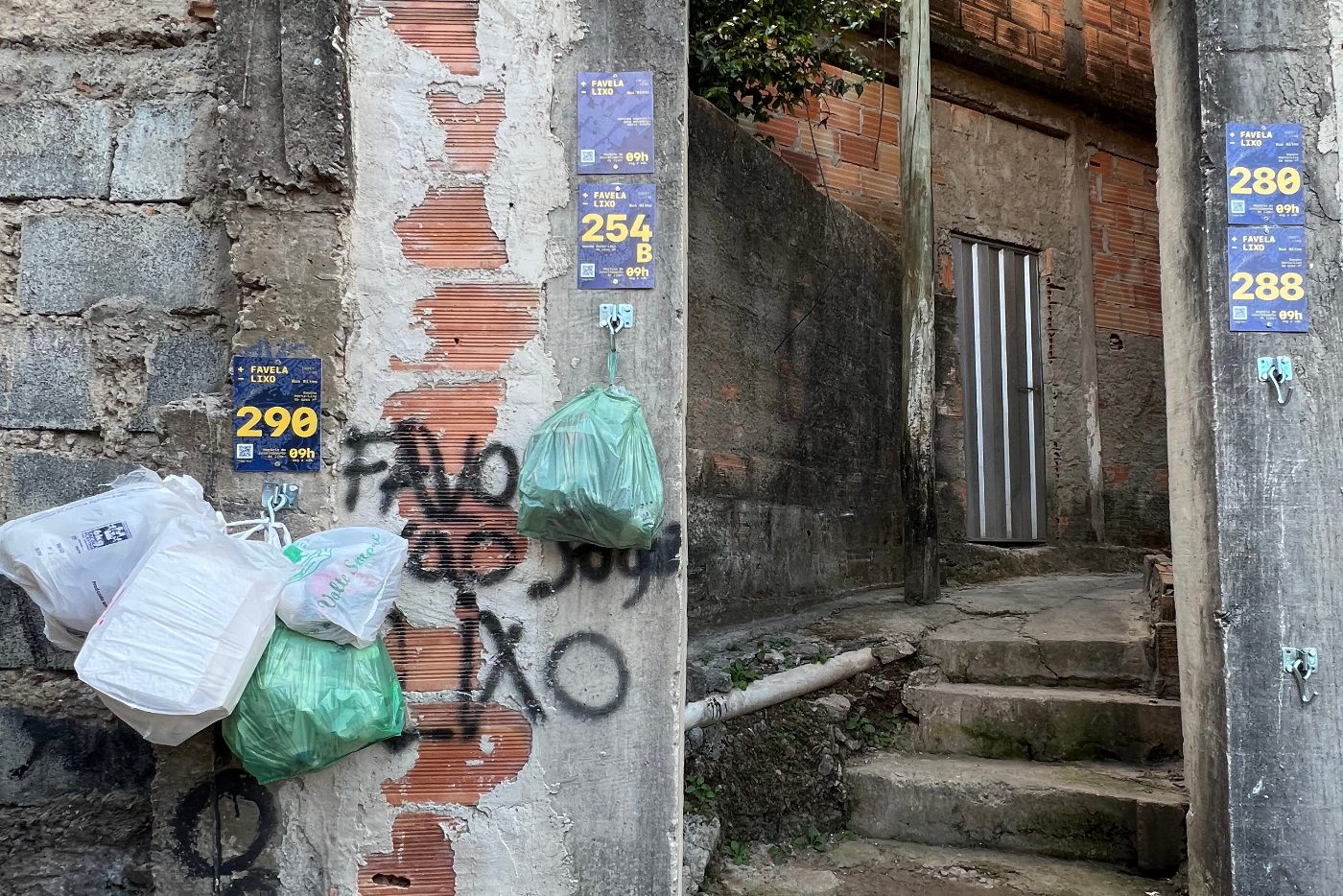Project implementation: Brazil
Project development: Brazil
In the Serra cluster in Belo Horizonte, the Mais Favela, Menos Lixo program demonstrates that transformations can arise from collective effort. Created in 2022 in response to community demand for improved waste management, the project has been built with the support of residents, students from the UFMG School of Architecture, and local partners such as Projeto Itamar, the Methodist Church, Cerâmica Santana, and Roots Ativa. The initiative combines popular and technical knowledge to address the precarious management of solid waste. The initiative affirms the favela as a powerful territory of invention, autonomy, and leadership.
The initiatives are developed through extension courses that connect students with the local reality. With over 50 projects completed, the areas of action include the creation of street furniture, outreach strategies, debris management, and urban agriculture. One of the most notable solutions is the installation of over 800 custom hooks to hang garbage bags until collection, a measure that protects rivers and forests from pollution and siltation.
The project also renovates areas with vegetable gardens and orchards, promotes composting, and reuses materials. Other interventions include the creation of educational games on construction waste management and the painting of the "Mapão do Serrão," an informative mural at the Professor Edson Pisani Municipal School. Furthermore, to strengthen community relations, ceramics workshops and film screenings are held in locations previously used for dumping garbage and debris.
The project has already expanded beyond the neighborhood, taking its practices and experiences to events in Brazil and abroad, consolidating its position as a benchmark in community self-management and sustainability. With six national and international awards, it has accumulated recognition that reinforces its relevance. Among them, second place in the CAU-MG Good Urban Practices Award. A significant achievement for the community and for Professor Edson Pisani Municipal School, a central partner in the initiative, was its contribution to the school being elected the best in the world by popular vote and one of the top three in the Community Collaboration category by T4 Education. Awards, reports, and academic presentations, from Jornal Nacional to conferences in Mexico, Copenhagen, and Montevideo, increase the visibility of the initiatives and highlight its contributions to the fields of architecture and urbanism and to tackling the waste crisis. Now, the project is arriving at the São Paulo International Architecture Biennial, reaffirming that the city of the future is built on the strength of the communities that inhabit it.




